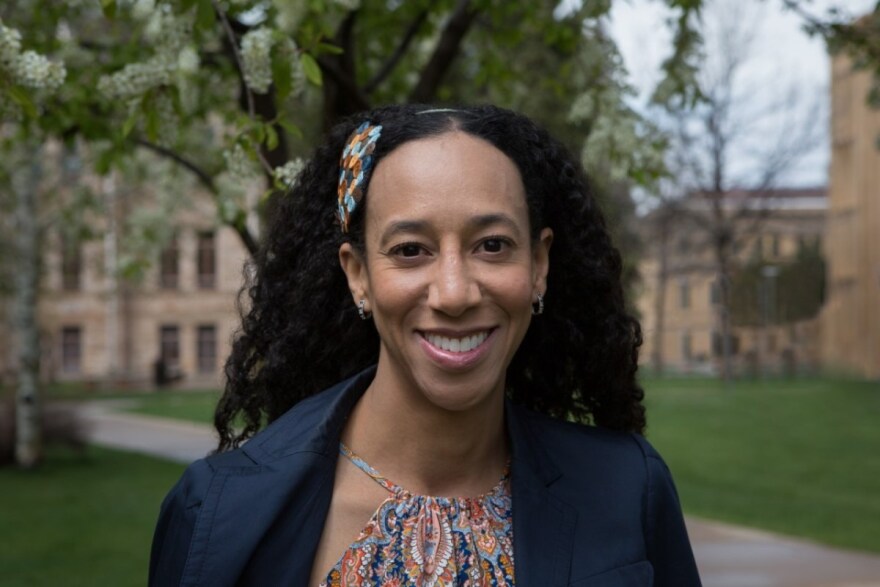In what has been described as part of the nation's original sin, segregation laws also known as Jim Crow laws, have been an issue of debate for decades. In recent years, efforts have been made towards an honest accounting of history to bring about healing from past wounds, and the promotion of national unity. But there is growing evidence that more needs to be done.
Dr. Tracey Patton, a Professor of Communication and African American Studies at the University of Wyoming, has researched and written extensively about Jim Crow laws. She spoke to Wyoming Public Radio's Friday Otuya, and said Jim Crow laws were not just imposed on Blacks in the United States but were also exported with Black servicemen to Europe and Germany where they served during and after World War II.

Tracey Patton: This is one of those lovely research topics where I'm able to bridge both aspects of how domestic and international efforts work together. And in this case, specifically focused on what happened during and after World War II, in the construction of now-former West Germany. And so I'm looking at issues of the transnationalism of Jim Crow in terms of how the United States, which would not be unique to the military, but how institutions like media or education, law, business, and even the military can import or export their rules and norms into other cultures and have an effect. And that effect can be negative or it can be positive. In this case, I'm looking at the effect that the United States, which at that time, had a Jim Crow policy, how that becomes imported into Germany, and the effect that it has on that community.
Friday Otuya: Can you cite instances of how that happened practically?
TP: For example, as it relates to this particular talk that I'm giving, for example, the U.S. military maintained segregation and segregation of troops while fighting in World War II. And so most of the men of color, who went over who were on the ground in Europe, were in segregated units. And so that would be an example of continuing Jim Crow outside of the borders of the United States. Eventually, we know that there is integration of troops that happened. But that comes much later and goes into post-World War Two and into the 1950s, mid-1960s. That would be an example of how the United States military maintains the U.S. policy of segregation abroad.
FO: What is the significance of this research finding today? How can we build from these findings in that sense? How do we bridge this divide that still exists today?
TP: Well, I think obviously, the military and the U.S. government, as a whole has tried to address segregation long ago, you know, once there was desegregation happening, both in the military as well as in other aspects of daily life, like education, for example. But in terms of today, my argument is that there is a legacy that continues of Jim Crow. And even if it's not within an official sense, it can be within that lived experience of the segregation that we sometimes find ourselves in as we are living in segregated communities, for example. And so, you know, having segregated housing, you know, we still have the split between who inhabits urban spaces in the United States and who inhabits more rural spaces. And so my research doesn't necessarily have answers on how one solves the issue of say, segregation that exists in 2021.
But it does posit aspects of how one bridges this divide. And I think one of the most important things in bridging divides, is critical listening, and engagement with people who might be different. And that means, like really sitting down, having the conversations, sitting silently, listening, digesting, reflecting. And it also really means not looking to big governmental agencies to solve everything.
But rather, I think some of the most important dialogues happen in local communities, happens at the local level, at the micro-level, and even around our kitchen tables at home when we're speaking with one another with family members and friends. So obviously, I'm a big proponent of dialogue. And I think that is one thing we can do to create understanding and break down some of the major challenges we still have in this country as well as in other countries in terms of cultural divides between one another.









